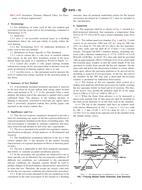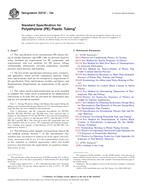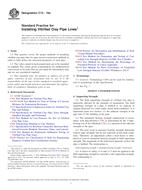1.1 This test method covers a standardized technique for measuring air-leakage rates through a building envelope under controlled pressurization and de-pressurization.
1.2 This test method is applicable to small temperature differentials and low-wind pressure conditions. For tests conducted in the field, it must be recognized that field conditions may be less than ideal. Nevertheless, strong winds and large indoor-outdoor temperature differentials should be avoided.
1.3 This test method is intended to produce a measure of air tightness of a building envelope. This test method does not measure air leakage rates under normal conditions of weather and building operation. To measure air-change rate directly, use the tracer gas dilution method (see Test Method E 741).
1.4 This test method is intended for the measurement of the airtightness of building envelopes of single-zone buildings. For the purpose of this test method, many multi-zone buildings can be treated as single-zone buildings by opening interior doors or by inducing equal pressures in adjacent zones.
1.5 This standard does not purport to address all of the safety concerns, if any, associated with its use. It is the responsibility of the user of this standard to establish appropriate safety and health practices and determine the applicability of regulatory limitations prior to use. For specific hazard statements see Section 7.
Product Details
- Published:
- 10/01/2003
- Number of Pages:
- 11
- File Size:
- 1 file , 130 KB
- Redline File Size:
- 2 files , 220 KB


